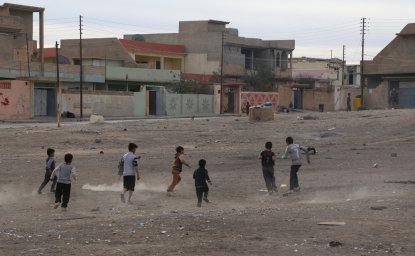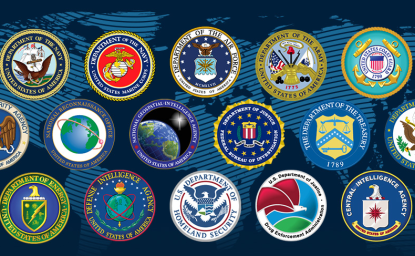1. The coordinated terrorist strikes Friday in Paris belong to a specific kind of terror, part of a global Islamic jihadi movement (however atomized and decentralized that network may be). They were not merely heinous acts by extremists, as President Barack Obama and Secretary of State John Kerry have said. In the wake of the jihadi attack on the Charlie Hebdo offices in Paris, the White House convened a summit on countering violent extremism. Let’s be clear: The West is being confronted by an international movement led by radical Islamists, drawing on Muslim texts and perversions of Islamic doctrines and practices, and seeking to inspire and recruit others in the Middle East, Europe, and elsewhere to inflict grievous harm not just on those of other faiths but also on Muslims they consider apostates. In the case of Islamic State, the perpetrators and the majority of their victims are Muslim.
2. President Obama’s point that ISIS has been contained in Syria and Iraq still rings true (even if it looks terribly untimely in the wake of the murderous assault on Paris). But containment in Syria and Iraq–that is, checking the expansion of its Caliphate and reversing some gains, as this week’s U.S.-backed Kurdish offensive in Sinjar demonstrates–misses the point. ISIS has the capacity to cross borders; inspire individuals and affiliates; and dispatch operatives into Ankara, Beirut, and elsewhere to carry out suicide attacks.
As ISIS loses ground in Syria and Iraq, the need to demonstrate its reach and range may take on greater importance. Perhaps more terrifying is the prospect of independent action by ISIS affiliates, returning foreign fighters, or unhappy and alienated Muslims, some of whom may have grown up in countries such as France or Belgium, as was the case with Charlie Hebdo attackers. An Egyptian group loyal to ISIS claimed credit for downing a Russian airliner last month. In short: There is an ample pool of terrorists for further attacks.
3. The global character of this threat requires a more effective and coordinated response—involving more cooperation in sharing intelligence, counterterrorism efforts, and border controls to prevent foreign fighters from traveling to the ISIS Caliphate and tracking those that return. Jihadi destruction in recent weeks includes suicide attacks in Turkey, Friday’s coordinated attacks in Paris, and probably the bombing of a Russian jet over Egypt. Now, consider: Turkey’s agenda in Syria seems to be more focused on hitting Kurds than stopping ISIS. Egypt still hasn’t formally conceded that the downing of that Russian jet was an act of terror and, worried about the potential impact on tourism, has been hesitant until recent days to share information about the Oct. 31 crash and ask for technical help. At a meeting of international diplomats in Vienna this weekend to discuss Syria’s civil war, Mr. Kerry announced Saturday that members of the Syrian opposition would convene in January to discuss a political transition. Already more than four years into Syria’s conflict, that process is likely to remain bogged down over differences between Russia and Iran on one side and the U.S. and Saudi Arabia on the other over Bashar al-Assad and which Syrian groups are terrorists (and which are not).
Jihadi terror is the product of an angry, broken, dysfunctional Middle East where large ungoverned spaces in Syria, Iraq, Yemen, and Libya; and widespread bad governance, or no governance at all, combine with a growing sectarian divide between Sunni and Shiites to feed extremism and violence. By killing Syrian Sunnis, Mr. Assad creates recruits for ISIS faster than the U.S. and its allies can train Syrians to oppose the regime. Other Arab states, such as Saudi Arabia, have been exporting and supporting extremist and fundamentalist Islamic ideology for years; they continue to do it by backing some extremist groups opposed to the Assad regime.
5. A massive and perhaps coordinated U.S., French, European, and Russian military response against ISIS in Syria is both necessary and inevitable. Maybe the Paris attacks will create the urgency required to deal with ISIS and global. The Obama administration may ramp up airstrikes, supply local forces with better weapons, and deploy more special forces. If ISIS succeeds in striking the U.S. there will certainly be calls for Washington to do much more. But we should be under no illusions. The fight against ISIS and global jihad is the long war. It may well be the greatest foreign policy challenge of this generation. Whether the spate of recent jihadi attacks, including those in Paris, prove to be a transformational moment or just another horrific twist in this long war remains to be seen.
The opinions expressed here are solely those of the author.
This article was originally published in The Wall Street Journal's Think Tank Blog.





